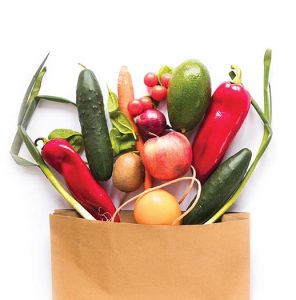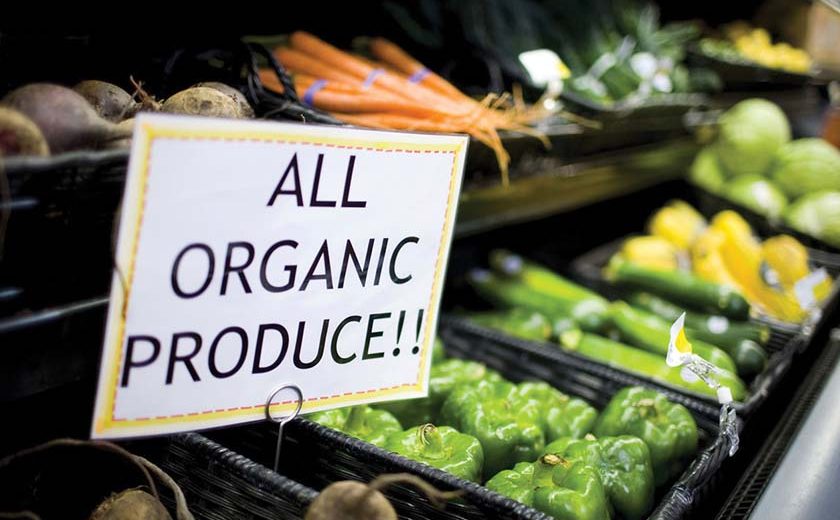The organic food movement took off quite some time ago, during the 1960s and 1970s, following awareness about the unintended environmental effects as well as health hazards of chemical fertilizers and pesticides.
From then on, organic farmers advocate maintaining a sustainable environment by using natural principles to maximize crop and livestock yield instead of turning to artificial and chemical methods, thus in doing so, providing food that is healthier, and in a healthier planet too.
Does Organic Certification Count?
Well, it depends. With the growing number of organic brands and ‘producers’, suddenly it seems like every other food business claims to be an organic one. Some may be authentic while other may not. There are brands and businesses that have their organic certification, for instance., but these certification do not necessarily cover many issues that have emerged as consumers become more knowledgeable.
Your organic food may be locally grown, in which case you may be able to physically trace its source. This may turn out to be an important point in buying organic, for there are, sadly, ‘organic’ food that are produced under less-than-ideal conditions for livestock or laborers. In another scenario, your organic food may be grown in a foreign country and shipped in, resulting in a larger carbon footprint, according to true organic food enthusiasts.
In response, farmers who practice pure organic farming have to really out it put there that they really are farming sustainably. They tend to have their own local clientele for foods raised in season, and provide a decent wages to workers. Also, some farmers who follow organic principles forgo organic certification such as the international USDA certification. That may explain why you sometimes find uncertified organic goods at your local supermarket.
COMMON SENSE
An organic label does not always have to mean that the food is nutritionally superior. For example, organic sweets and snack foods don’t warrant a nutritional halo just because they’re organic. In excess, fat, sugar, and calories can have adverse health effects, whether or not the food that contains them is organic.
Is Organic Food Really More Nutritious?
While we know organic farming respects the planet and environment, do we have proof however that they’re more nutritious than conventionally grown food? While there have been studies done to prove this, they were from pro-organic organizations, so their findings were, well, questionable. On the other hand, it’s a whole different story if it’s coming from independent scientists. For example, researchers have found higher levels of nutrients in organic tomatoes, kiwifruit, corn, and strawberries compared to conventionally grown versions.
 Before You Dash Off To The Supermarket…
Before You Dash Off To The Supermarket…
There are many reasons why people choose to buy organic food. Health, and concern for the environment are usually the top reasons. Some may find that they want to switch to organic food, but simply can’t afford the price tag that comes with it.
Before we offer some valuable tips on the matter, we highly encourage you to watch the video called Carb Loaded – A Culture Dying To Eat. One of the issues discussed in the educational vid is portion sizes. Most of us are eating way too much for our bodies! Another point worth remembering is, the more wholesome and natural the food is, the less you need to eat to feel satiated. The poorer the quality of a food – loaded with processed carbs, bad fats, high in salt and sugar, etc, the higher the chances of overeating.
With that being said, when shopping for organic products, remember, you do not need to overload your body with good food to be healthy. Rather, feed your body the good stuff in appropriate portions to function well and fend off diseases.
Have A Priority List
Have a priority list in organic grocery shopping. Some types of produce contain more pesticides than others. Invest in organic for those foods that are traditionally pesticide-heavy, especially if your budget doesn’t allow you to freely buy organic. (see The Dirty Dozen). The low-pesticide foods can be bought from the non-organic section.
Local And Seasonal Produce
Locally grown, seasonal produce may have a lower environmental cost than organic items that use fossil fuels and energy to travel long distances in shipping. If possible, consider local and organic produce. It’s getting easier to find suppliers of organic fruits and vegetables all around the country. All you have to do is to search online or on Instagram and Facebook. Chances are, there might be one near you and you might be able to go buy your organic produce direct from them.
The Dirty Dozen
The dirty dozen consists of foods which are most contaminated with pesticides and/or with pesticide residues which are difficult to clean off. Needless to say, it’s best to buy these from the organic section of your supermarket.
- Apples
- Peaches
- Nectarines
- Strawberries
- Grapes
- Celery
- Spinach
- Sweet bell peppers
- Cucumbers
- Cherry tomatoes
- Snap peas
- Potatoes
Note: Added to this list are chillies and kale.
Keep Good Nutrition In Mind
When buying meats, dairy, or processed foods, factor the item’s whole nutritional value. That will keep you on the right track, together with the fact that you do not need a whole lot of food to be healthy.
Shop At Hypermarkets
Compared to high end grocery stores, hypermarkets such as Tesco and Giant for examples, offer organic foodstuff at much lower prices. Added up, you may find that you can, after all, afford a whole lot more organic food than you thought.
Usda Organic Labeling Terms
The following are USDA rulings on how organic foods can be labeled.
- 100% organic: These are fully organic food, so they carry the USDA green and white “certified organic” seal. Most foods from this category comprise of whole foods―apples, oranges, grains, or those with only one or two ingredients such as pasta.
- Organic: Contains at least 95% organic ingredients, and the remaining made up of approved ingredients. Most of these foods are made from of whole-food ingredients and they too carry the USDA seal.
- Made with organic ingredients: At least 70 percent of the ingredients are organic. However, these foods, which may be any type of processed or packaged food, do not have the USDA seal on their labelling.


